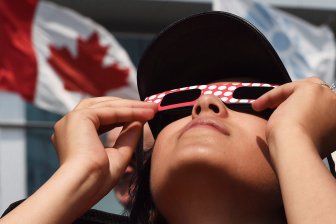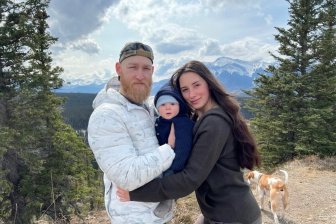Families of mentally ill men killed in Winnipeg police shootings call for joint inquest
The families of two men who were shot and killed in Winnipeg police shootings in recent months, and their legal counsel, are calling for a joint inquest into their deaths.
Bradley Singer, 59, died on Feb. 13 after being shot and killed by Winnipeg police officers during what began as a mental health-related call. Police had been trying to apprehend Singer for a few days and were trying to take him to hospital under a Mental Health Act order.
Police allege Singer was armed with a crowbar and discharged a fire extinguisher at them before locking himself inside the Magnus Avenue home.
According to police, members of the tactical support unit tried to communicate with officers before breaching the home. Then Singer allegedly confronted tactical officers with a “large-edged weapon”. Officers shot him and Singer was taken to the Health Sciences Centre in critical condition, where he later died of his injuries.
Video obtained by Global News shows officers in tactical uniform surrounding the home.
“We want to get you out safe. Can you please come down the left-side door, left-side door with your hands up, nothing in your hands? No one is going to hurt you, and we’ll get you some help,” an officer is heard saying over the loudspeaker in the video.
“That kind of police response may be justified in the case of a terrorist, drug dealer, or a hostage taker, but in my respectful view, cannot be justified when dealing with a sick man who needed to be safely and securely seen by a doctor. And we should be outraged by what we just saw,” Martin Glazer, lawyer for the Singer family, told reporters.
More on Canada
“This vulnerable, mentally ill man must have been extremely frightened when confronted with heavily armed police officers.”
Gerry Singer, Bradley Singer’s brother, echoed that statement.
“In some ways it’s hard to believe that it actually happened,” Singer told reporters during a press conference Friday, adding that his brother was a kind person who struggled with his mental health for most of his life. “It’s so unnecessary for this to happen and I can’t imagine how my brother felt dying like that. It’s got to be horrific.”
Singer says his emotional wounds only get deeper with time.
“For myself, it just gets worse every day. Every day that passes I just get sadder as the reality sinks in that my brother and best friend is gone forever,” he said.
Less than two months prior to Singer’s death, Afolabi Stephen Opaso suffered a similar fate. Opaso was a 19-year-old international student from Nigeria studying economics at the University of Manitoba. He was shot and killed by Winnipeg police officers on Dec. 31.
“When we see people living with (a) with mental health situation and unfortunately ending up dead as a result of police conduct, it raises questions for the family,” Jean-Rene Kwilu, the lawyer for the Opaso family, said.
Both cases are being investigated by provincial police watchdogs. The Independent Investigation Unit (IIU) of Manitoba is handling Singer’s case, while the Alberta Serious Incident Response Team (ASIRT) is investigating Opaso’s case due to a family connection between an officer involved in the incident and a Manitoba Justice employee.

The Chief Medical Examiner’s office says it automatically conducts inquests into police-related fatalities once the independent investigation wraps up. But both Glazer and Kwilu are calling for a joint inquest to be conducted, given the similarities of each case.
“Not only do they involve the same police force, but in both cases, the men killed were mentally ill,” Glazer said. “They were not criminals. They were sick, and they needed help.”
Glazer said he wrote to the Chief Medical Examiner, Dr. John Younes, on March 20 requesting the joint inquest, but has not heard back.
They are also calling on the province to put in support services specifically for families who lose a loved one in police deaths. Both lawyers said not only are their clients going through emotional distress, but they’re also facing funeral costs, travel costs, and costs for damage to their homes that occurred as a result of the police shooting.
The lawyers are also recommending that all police operations be filmed by body camera or smart device for transparency.
In an emailed statement to Global News, Justice Minister Matt Wiebe said his “heart goes out to the families dealing with the tragic loss of a loved one, and the impact ripples throughout communities”.
Wiebe said his government’s recent budget allocated funds to hire 25 mental health workers to work alongside law enforcement.
“Recently, the Independent Investigations Unit hired a Director of Indigenous and Community Relations, which is a first step towards changing the way the IIU interacts with families and communities to better support them,” the statement read.
“We are also in the process of reviewing policing standards across Manitoba and want to ensure that incidents like these ones never happen again.”
&© 2024 Global News, a division of Corus Entertainment Inc.
View original article here Source












